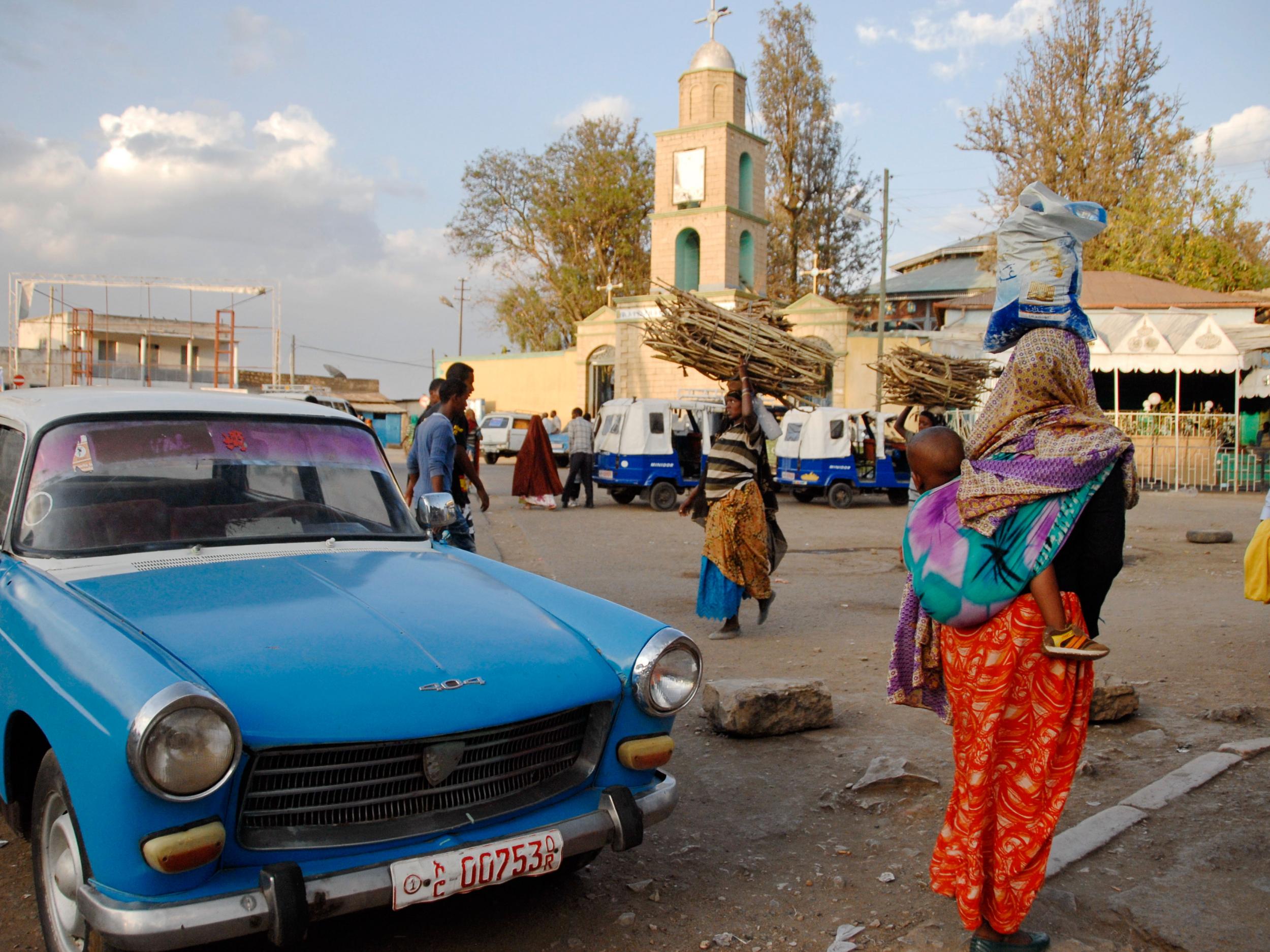Archaeologists dig up ancient Islamic city in town believed to have been 'home to giants'
'Farmers had been finding strange objects, including Chinese coins, as they were working on their land' the lead researcher says

Your support helps us to tell the story
From reproductive rights to climate change to Big Tech, The Independent is on the ground when the story is developing. Whether it's investigating the financials of Elon Musk's pro-Trump PAC or producing our latest documentary, 'The A Word', which shines a light on the American women fighting for reproductive rights, we know how important it is to parse out the facts from the messaging.
At such a critical moment in US history, we need reporters on the ground. Your donation allows us to keep sending journalists to speak to both sides of the story.
The Independent is trusted by Americans across the entire political spectrum. And unlike many other quality news outlets, we choose not to lock Americans out of our reporting and analysis with paywalls. We believe quality journalism should be available to everyone, paid for by those who can afford it.
Your support makes all the difference.A dig in eastern Ethiopia has discovered an ancient Islamic city, the first evidence that the country had been well connected to the Gulf, Egypt and India for trade.
Archaeologists travelled to the town of Harlaa and unearthed a 12th century mosque, evidence of Islamic burials and headstones, glass vessel fragments, carnelian (which was often used in ancient Islamic societies for jewellery) as well as pottery from Madagascar, the Maldives, Yemen and China.
The structure of the Islamic house of worship was found to be similar to those in Southern Tanzania and Somaliland.
Bronze and silver coins from 13th century Egypt were also found on the site.
Farmers had stumbled across pottery and coins from the ancient civilisation for many years, but it was not until researchers from the University of Exeter arrived that the city was revealed.
Professor Timothy Insoll , who led the research said: “This discovery revolutionises our understanding of trade in an archaeologically neglected part of Ethiopia. What we have found shows this area was the centre of trade in that region. The city was a rich, cosmopolitan centre for jewellery making and pieces were then taken to be sold around the region and beyond. Residents of Harlaa were a mixed community of foreigners and local people who traded with others in the Red Sea, Indian Ocean and possibly as far away as the Arabian Gulf.
“The archaeological findings suggest this place was home to a very mixed community. Local people were extremely keen for us to solve mysteries. Farmers had been finding strange objects, including Chinese coins, as they were working on their land, and a legend began that the area was home to giants. We have obviously disproved that, but I’m not sure they fully believe us yet.”
The large size of some the building stones inspired a local legend which says giants used to live in the area.
They have so far dug to a depth of 2.5 metres and dated their earliest findings to the 6th century. The discoveries will be exhibited in a heritage centre run by local people, and some will also be taken to a national museum in Addis Ababa.
The country has long been a fascinating destination for archaeologists because of its rich history. Remains of Lucy the Australopithecus afarensis, from a species said to be a forerunner to modern humans and around 3.2 million years old, were discovered in Ethiopia.
Join our commenting forum
Join thought-provoking conversations, follow other Independent readers and see their replies
Comments